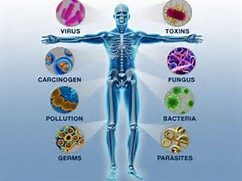Who Is The ID Patient?
ID specialists diagnose and treat conditions resulting from all types of infections, including those caused by germs (bacteria, viruses, parasites and fungi). These microscopic organisms penetrate the body’s natural barriers and multiply; creating symptoms ranging from sore throat and fever (as in strep throat) to more serious and even deadly problems (such as AIDS or meningitis).
WHEN TO CONTACT BAY AREA INFECTIOUS DISEASE ASSOCIATES
Not all infectious diseases require you to see an ID specialist. Many common infections can be treated by your personal physician. Your doctor might refer you to an ID specialist in cases where an infection is difficult to diagnose, is accompanied by a high fever or does not respond to treatment. The specialized training and diagnostic tools of an ID specialist can help determine the cause of the infection and the best approach to treatment.
ID specialists also see healthy people who plan to travel to foreign countries or locations where infection risk is higher. ID specialists can help determine whether special immunizations or other preventative measures are necessary to help protect travelers from disease.
TYPES OF TESTS PERFORMED
Infectious disease specialists are like medical detectives. They examine difficult cases, looking for clues to identify the culprit and solve the problem. If you are in the hospital or ICU with a severe illness, you may be too ill to be aware of your ID specialist’s visits. Much of their work is done behind the scenes. ID specialists determine a diagnosis and coordinate a plan to treat your disease. They will review your medical data, including X-rays and laboratory reports such as blood work or culture data.
ID specialists often order laboratory tests to examine samples of blood or other body fluids or cultures from wounds. A blood serum analysis can help the ID specialist detect antibodies that indicate what type of infection you have. Often these advanced studies can further explain the results of earlier tests, helping to pinpoint the problem.
TREATMENTS
Treatments consists of medicines, usually antibiotics, to help battle the infection and prevent it from returning. These medicines may be given to you orally (pill or liquid form) or administered directly into your veins, via an IV tube. Our office has an infusion center and also provides home infusion therapy; treatment in an outpatient center decreases likelihood of hospital readmission.
WHAT INFORMATION SHOULD I BRING TO MY CONSULT APPOINTMENT?
Be sure to bring all medical records related to your condition, including X-rays and laboratory reports and immunization records. Often your personal physician will forward this information to your ID specialist prior to your appointment. You should also provide your ID specialist a complete list of all medications you are taking and any allergies you may have. The list should include over-the-counter (nonprescription) medications as well.




